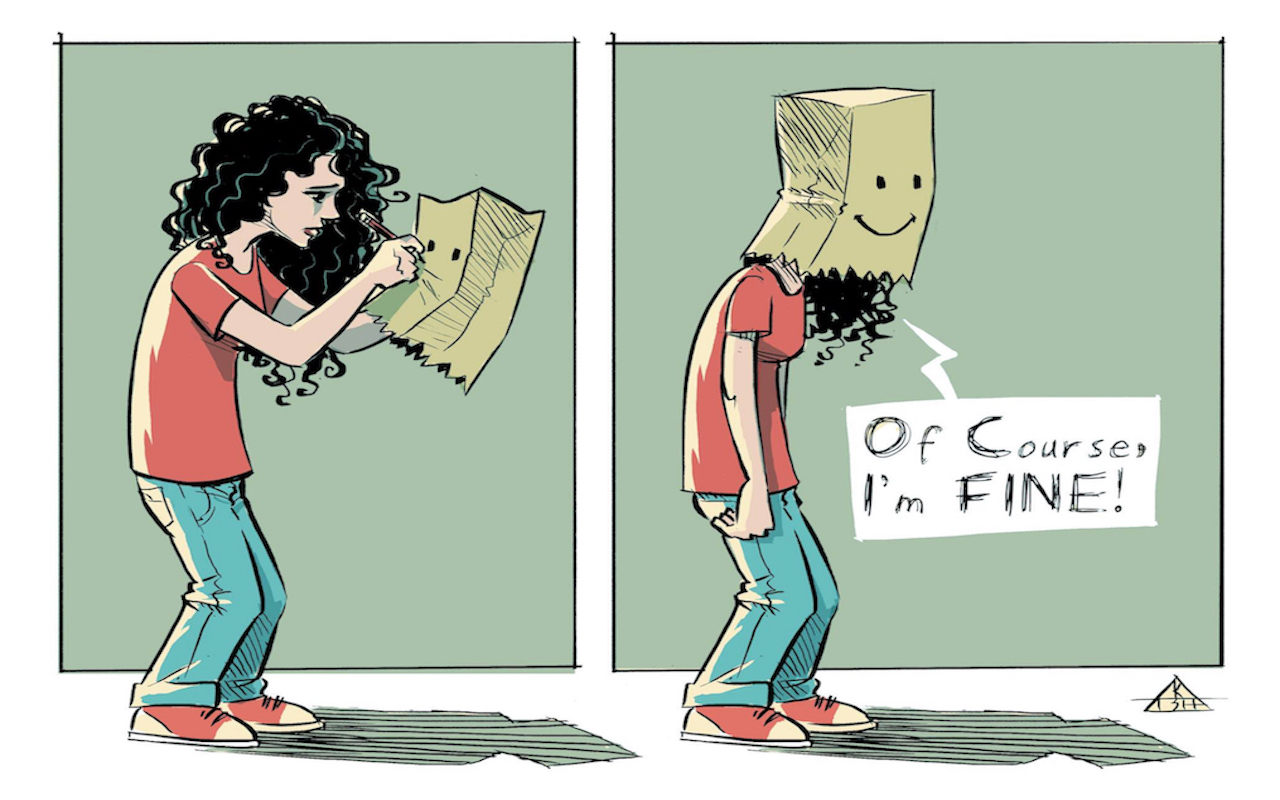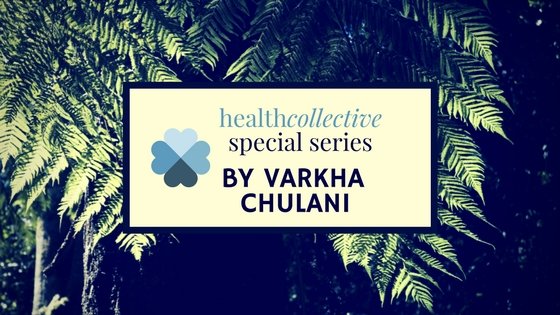Your Stories: Battling Stigma, Expectations and other Burdens as a Young Adult with Depression
By Ishita Mehra
I used to think that the inability to work was an excuse most people would make to get off work. Until I reached that inability to work and function and then I became ‘that person’ with ‘that excuse’ to get off work.
‘That person’ with ‘that excuse’ of not knowing how to express care.
‘That person’ with ‘that excuse’ of not being able to deal with their own things.
I hid most things and most feelings because I had known what it felt like to be called ‘depressed’.
Growing up, I would hear friends and peers make judgemental comments about depression and people with depression. So, I knew the importance of keeping up a happy face, both in my professional and personal relationships. It was a way of feeling accepted knowing the stigma of depression, because even fake inclusion is better than no inclusion in the world. I realised that depression was not new to me, it was just a new realisation for me.
ALSO READ: BUSTING SIX MYTHS ON DEPRESSION
This realisation came to me while I was in a relationship during my last year of college in 2017. I hadn’t realised that I felt burdened by the relationship because there was an expectation of perfection kept on me. I felt restricted.
This relationship continued on after college for about half a year as my mental health struggle worsened. The expectation to be ‘normal’, ‘calm’ and ‘wise’ were guilt-provoking. Misery knows no calm and I certainly and rightfully had no ‘grace’ while going through mental breakdowns. I was made to believe that my depression makes me unlovable.
ALSO READ: RELATIONSHIP STRESS
Some people think they are entitled to choose who deserves to be loved, and how and when and why, and who deserves to be shamed, how, when and why. I fell into the belief that I was truly, truly a very terrible person because my depression was just not okay. Because it made me crude, it made me hopeless, tired, scared, unaware, confused, it made me feel dull. It’s like I was considered a lesser human being.
Eventually, when I started seeing symptoms of depression, anxiety and trauma, I assumed that these were emotional responses to the financial crunch me and my family had been in.
Since the time I was born, I have never really seen an easy financial year in my family. I was four years old, I believe, when I learnt that the house I lived in wasn’t owned, but rented by my family. I learned what it meant to leave home and find yourself in a new rented space again, when I was five because that is when we moved to another house. As I grew up, I was told that my father’s business wouldn’t last and that me and my sister would have to be independent to manage ourselves. Mom often encouraged me to work on freelance projects besides my study during college, to help me prepare to be financially independent. I can’t thank her enough for her thoughts. I also couldn’t think of disappointing them, knowing the situation at home.
My father’s business went in deeper and deeper losses and we began to lose a lot of finances. The debts of his father carried on in his life and now the debts of my father and grandfather will carry on mine. This made me feel very frustrated and upset. I felt angry all the time, feeling like I didn’t deserve to take up responsibilities at a younger age. I felt like I was often too constrained and everything was unfair and at odds. I guess the lack of equity in life makes us feel that. Because if we do consider that no human is less than the other, then why are some of us born to live like they are less than others?
Following the experience of feeling less of a human along with some financial strains, I found my health deteriorating to an inability to work. Here is what made things complicated. My lack of ability to work and function required professional care, which in turn required money. However I couldn’t earn without a job so I needed to find a job to earn but I couldn’t work because I wasn’t mentally well. I feared disappointing my parents by not being financially independent. So I started internalising the fear of poverty. Though I began realising a growing need for treatment, I would be haunted by the thought of financial impairment that I had seen and faced since childhood. Illness was not an option, and neither was treatment.
I remember my first counselling session was paid by a dear friend from college who was more than willing to accompany me and help me out with my health. The cost of a one hour session was INR 1500. The counsellor at that time, told me that I was under severe depression and if it was left untreated, it could become chronic and harder and harder to treat. I would require about 10 to 15 sessions at minimum of any kind of psychotherapy. My first instinct was not to consider the consequences of untreated depression but to think of the consequences of paying a huge sum of money for my treatment. I calculated the minimum total cost of therapy which was anywhere between Rs 15,000 to 20,000, which was a lot for me to pay.
I hadn’t discussed my counsellor session with my parents. I had somehow made the decision that it would not be worthwhile to bug them with the idea of therapy knowing that we wouldn’t have the money to pay for it. So the decision was final. And I went on with life for another three months untill I began to casually break down more and more and more till suicide came back to befriend my thoughts.
(Editor’s Note: If you or anyone you know feels or discusses suicidal ideation please reach out to a trained professional for help. Some free helplines are listed here including iCall and other free helplines)
I had no option but to accept therapy. I could access therapy only partially because it was beyond the means of what I could afford so I chose to be on medical treatment. I depended on my parents for the treatment. After some months of medical treatment, I began to see differences in my health and felt hopeful for a better future for myself. And I began to work in an organisation, despite not fully recovering.
ALSO READ: UNDERSTANDING THERAPY
I had learnt a trick of resilience by that time. The trick was to just carry on. I would still have many struggles with health because psychiatric treatment only helped me with biological changes. However, I still had various unknown and undiscovered conflicts that had not been resolved. I had emotions I didn’t know how to manage when triggered. Triggers I couldn’t pin-point where they arose from. The hope of better health was my light at the end of the tunnel. The once broken foundation of self-esteem now felt esteemed towards something divine. Growth.
I understand the intricacies that people face in accessing mental healthcare a little better now. My experience has taught me that it is very easy for people to assume that one can just walk up to a doctor to get help when they are sick. If it was that easy, most of us would be healthy and well. There are various stressors involved in people’s lives that create an obstruction for them to access health care, some factors are more political than we know.
My training in mental health youth advocacy gave me insight into how individual steps can be taken to help ourselves and others to access affordable mental health care. Initiating workshops to help understand mental health and support groups for people to connect to health care are my present actions of change. I feel that it is the least that I can do.
Views expressed are personal. The Health Collective cannot substitute for expert advice from a trained mental health expert.
Feature Image: Art by Kishore Mohan for The Health Collective





Superb website you have here but I was wondering if you
knew of any community forums that cover the same topics
discussed in this article? I’d really like to be a part
of community where I can get advice from other knowledgeable individuals that
share the same interest. If you have any suggestions, please let me know.
Bless you!
Pingback: Lockdown Comics: Applying Lessons Learned Coping with Depression – The Health Collective India
https://waterfallmagazine.com
Do you mind if I quote a few of your posts as long as I provide credit and sources back
to your weblog? My blog site is in the very same area of interest as yours and my visitors would certainly benefit from some of the information you present here.
Please let me know if this okay with you. Many thanks!
Sure if you’re backlinking! Thanks!